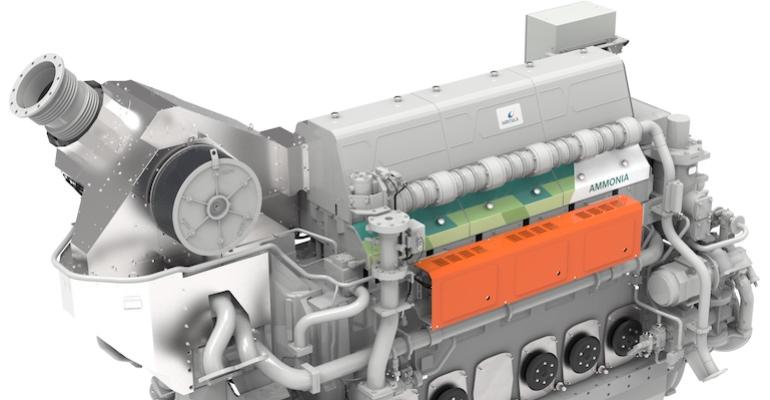The new propulsors will reduce greenhouse gas (GHG) emissions by more than 70% compared to a similar diesel-powered unit when measured on a well-to-wake basis, Wärtsilä’s Juha Kytölä, director of R&D and Engineering, told journalists yesterday. This, would enable immediate compliance with both EU 2050 requirements and IMO 2040 targets, he said.
Viridis, a Norwegian joint venture – with partners Amon Maritime, Mosvolds Rederi, and Navigare Logistics – is expected to sign a contract for the new ammonia-fuelled engines early in 2024. The company plans to order a series of new bulkers that will provide short-sea customers with carbon-free shipping options in the European market.
The Wärtsilä 25 engine platform, launched at SMM 2022, has a power output ranging from 1.9-3.1 MW as a dual-fuel engine. Kytölä revealed yesterday that the new engine series will be available with multi-fuel options, capable of operating on LNG, biogas, and bio-diesel, as well as ammonia.
Although green ammonia is a carbon-zero fuel, the Wärtsilä 25 ammonia engine will still require pilot fuel for the ignition and combustion process. The technology company is currently researching carbon-free pilot fuel options, Kytölä told journalists yesterday. This would not mean a carbon-zero operation on a well-to-wake basis, he said, but could significantly improve the 70% GHG reduction that is expected so far.
The 2024 engine contract is likely to mean that the first engines will be delivered in 2025, Kytölä said, and the price will be ‘attractive’.
Copyright © 2024. All rights reserved. Seatrade, a trading name of Informa Markets (UK) Limited.
Add Seatrade Maritime News to your Google News feed.  |

